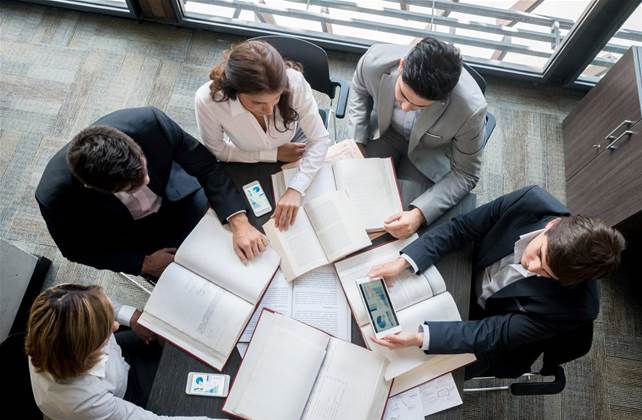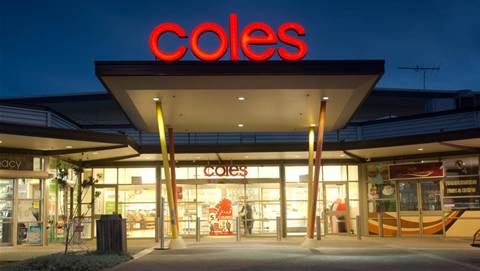Law firm MinterEllison has implemented its own GitHub Copilot as looks to AI to assist in identifying productivity opportunities and drive innovation in the legal sector.

Through its partnership with Microsoft, MinterEllison became one of the first law firms globally invited to sign up to the Copilot early access program, alongside the adjoining research program.
Chief digital officer Gary Adler said the moment it received authorisation, the firm began to deploy the new technology.
The company sought expressions of interest from staff to lead a GenAI learning module in its mentors digital academy, alongside a short use case.
“This was really to ensure that the license was being deployed to someone who was committed to really put Copilot through its paces," Adler said.
“Over time, we plan to rotate these licenses including to those who are actually fearful of the technology because we don't want to leave anyone behind.
"That is really one of our core [strategic] tenets as well with this rapidly changing landscape.”
“Anecdotally”, he said, the firm has seen high engagement with Copilot though, to the point that “no one wants to give their license back”.
“It's relatively early days, but to share some initial survey results, I can say that at least half the group suggests that from using Copilot, they save two to five hours per day," Adler said.
“One-fifth suggest they’re saving at least five hours a day. Nine out of 10 would recommend Copilot to a colleague.
“Finally, 89 percent suggest it's intuitive to use, which you never see with the technology, so it's been very easy to drive that level of adoption.”
A “clear signal”
Adler said this was “clear signal” to both its people and clients that the firm is “committed to leading generative AI in our field” to enhance the client experience, productivity and its people proposition.
“Outside of Copilot, we've also started building our own Gen AI toolsets to improve the productivity of lawyers and consultants.”
Adler listed its ‘chat with me’ project currently in production which is a private version of ChatGPT, “which uses the latest GPT-4 language model in our private and secure Microsoft Azure environment.”
It's also looking at “AI enhanced e-discovery” as well as a "Microsoft Advice Generator" that captures some of its legal knowledge.
Adler added said this tool helps “generate first cuts of legal advice”.
“Importantly, this was co-led by a fusion team which included our digital automation team, a partner and his lawyers who specialise in environmental and planning law, and a Microsoft technical partner, Arinco.”
A user, seeking advice, can enter a prompt into the generator to write a detailed legal letter in relation to one of their clients.
Adler said the generator can create citations pointing to where it is drawing the advice from, “which is very important.”
“This is critical to ensure we're not receiving fabricated responses - or as it's now become known, hallucinations - from the AI and it allows our lawyers to also look more deeply at the reference points that are being leveraged by the AI,” he said.
The AI is also capable of revising what it has already generated with the citation links opening a reference document pulled from its own data library to ensure accuracy and to “avoid the app pulling random legal advice from the internet, which may not be applicable.”
MinterEllison also made a tab called ‘thought process’ to ensure its lawyers can understand how the prompt seeks out relevant information.
The company additionally placed “guiding rails” into the new tool, certifying responsible AI and governance and adding pop-ups to remind staff not to use client or confidential data with some of the GenAI tools.
“We've developed a set of lighthouse principles aligned with responsible AI usage which cover key areas like accountability, privacy, security, explainability, data, bias, and so on”.
"Critical technology"
Adler said the law firm sees GenAI “as a really critical technology for the future of our industry.”
He said more recently generative AI has now been endorsed by the executives and the board as one of the firms “strategic imperatives, with a focus on adopting a leading-edge posture in this market.”
“Our approach has been multifaceted. It is a multifaceted technology, but we always look at new technologies and the same with Gen AI, through an enablement lens.
“That is how will it enable the firm's overarching strategy."
One strategic element is how the tools can be used to “innovate the way that we produce work for our clients”, automate “menial tasks” and “remove the layers of pain and mundane again”.

.png&h=140&w=231&c=1&s=0)
.jpg&h=140&w=231&c=1&s=0)
.jpg&h=140&w=231&c=1&s=0)









.jpeg&h=271&w=480&c=1&s=1)








